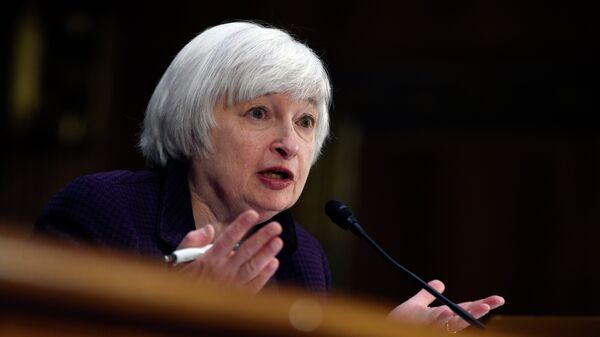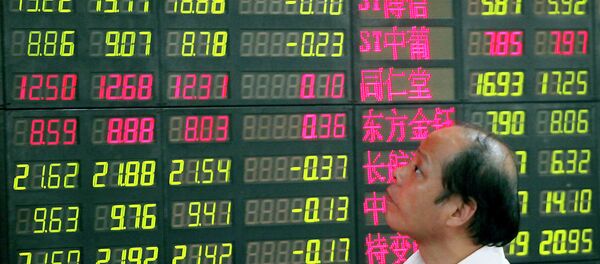Markets in Asia-Pacific have posted gains Wednesday with Japanese stocks driven higher by the previous day's gains on Wall Street, while in China a more optimistic preliminary (flash) Purchasing Managers’ Index (PMI) in manufacturing has shown an insignificant expansion at the reading of 50.1 (growth starts at the figure of 50) in February.
MSCI Asia-Pacific Index sans Japan rose 0.6% by the mid-day trading, while Japan’s Nikkei 225 added 0.1%, extending yesterday’s gains beyond its 15-year maximum. The broader Topix index of Japanese shares also posted gains of 0.1%, with a rally in the financial sector. SoftBank Corp. added 3.2%, being the driving force behind the Topix gains today. However, shares in retail retreated with Aeon losing 0.9%, struggling to post good sales as the nation is balancing on the brink of deflation.
"We're getting a sense of security from expectations of a delay in U.S. rate hikes," Hiroichi Nishi of SMBC Nikko Securities Inc. in Tokyo told Bloomberg. "The market looks overbought in the short-term and so we’ll be seeing some profit taking."
In China, the pace of the ongoing cooling of the economy has slowed, as the flash PMI in manufacturing reading stands at 50.1 – not as low as expected previously (49.5), but insufficient to prove any real growth. Beijing is expected to launch a full-scale monetary easing, similar to that of Japan and the Eurozone, in order to spur domestic demand and the overall economic activity.
"Domestic economic activity is likely to remain sluggish and external demand looks uncertain," Qu Hongbin of HSBC told Reuters. "We believe more policy easing is still warranted at the current stage to support growth."
However, Yellen's statements also mean that the US recovery is not sustainable yet, and the situation needs to be closely monitored as, according to her testimony, monetary policies will be adjusted "on a meeting-by-meeting basis." The whole situation in the global economy, hence, is more of a pessimistic one, as the Eurozone, Japan, and now China are falling into deflation, while inflation in the US is getting weaker.
In the US, housing prices have advanced, as evidenced by the data released Tuesday. Services sector also posted growth, but consumer confidence stumbled, affected by stagnant effective wages most likely.
US Treasuries and the dollar retreated as investors' demand for safe haven assets evaporated after Yellen's testimony. The money is not yet leaving stock markets.
The euro advanced over Tuesday's valuation of $1.1288 to $1.1349 after Greece’s international creditors approved the reforms plan proposed by Athens, thus keeping Greece in the Eurozone and extending its bailout by four months.
Brent crude rose 0.4% to $58.88/bbl, driven by the news of China’s stabilization, while WTI retreated 0.1% to $49.25. Precious metals only gained against the dollar, weakened by Ms. Yellen’s remarks.



